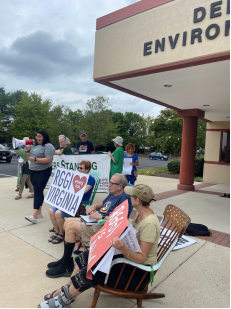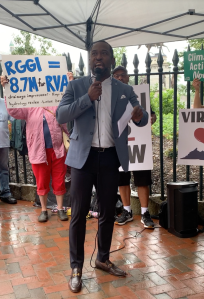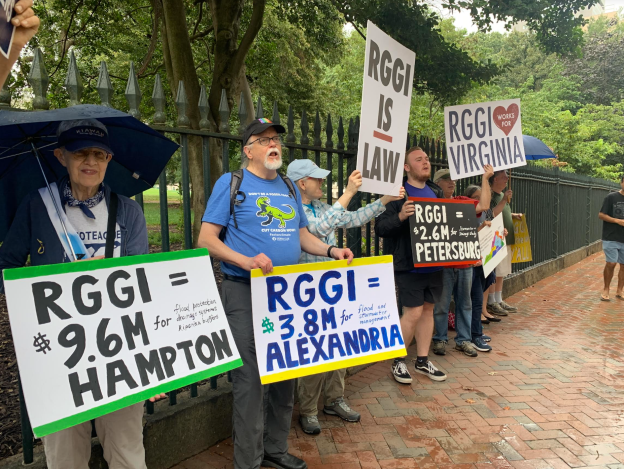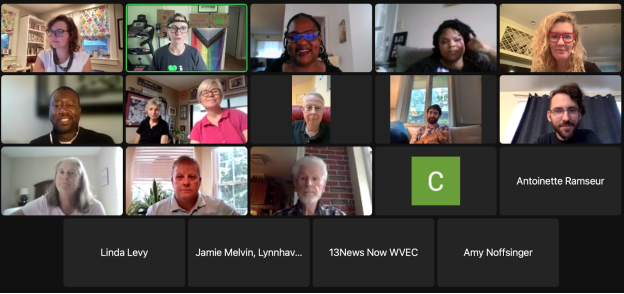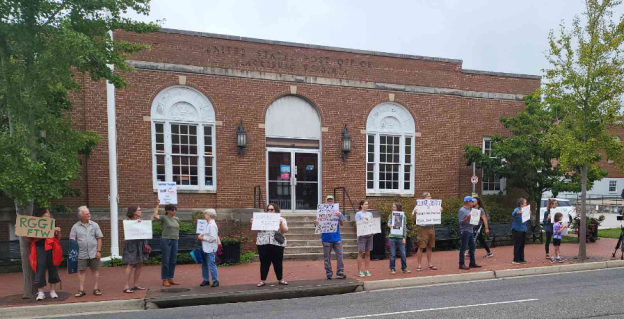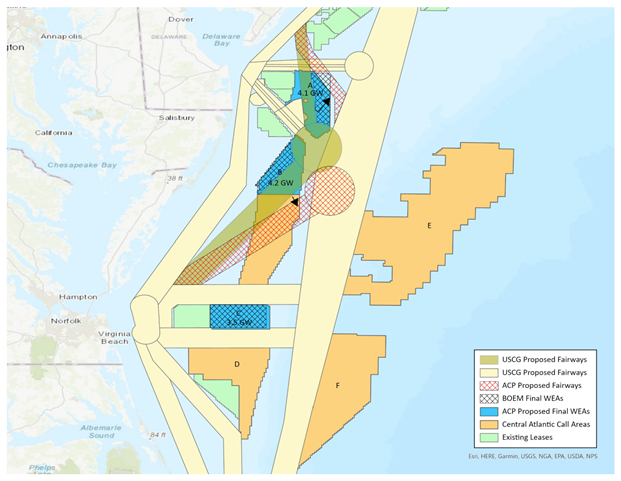In responding to the Maryland Department of the Environment Climate Pathway Report, a broad coalition of environmental and justice organizations in Maryland have put forward comments in support of the state plan to combat inequities and meet the state’s ambitious pollution reduction mandates
Baltimore, MD — For the first time, a coalition of climate and justice advocates has put forward a comprehensive set of comments on actions to eliminate the state’s climate pollution. Climate Partners, the coalition that compiled the comments, praised Governor Wes Moore and the Maryland Department of the Environment (MDE) for putting forward a comprehensive package of climate solutions in the form of the Maryland Climate Pathway Report released earlier this year.
“Governor Moore is less than a year into his first term in office, and already he is the first Governor of Maryland ever to propose a set of policies that would actually get Maryland to net-zero emissions,” said Kim Coble, Executive Director, Maryland LCV. “He deserves tremendous praise for that accomplishment, and we look forward to working with the Moore Administration to refine, pass, and implement these policies.”
In particular, advocates praised the Moore Administration’s plan to create air quality equipment standards that would, over time, eliminate air pollution from energy use in buildings. In September, a new report found that emissions from fossil fuel-powered furnaces and water heaters cause three times more air pollution than all of the state’s power plants combined. These findings underscore the importance of the air quality equipment standards proposed in MDE’s Pathway Report.
“Enacting Air Quality Equipment Standards, referred to as zero-emissions appliance standards in the report, is a critical step that the Moore Administration can take through executive action to address the climate crisis in Maryland,” said Jamie DeMarco, Maryland Director of the Chesapeake Climate Action Network. “Governor Moore should waste no time in enacting this life-saving policy.”
MDE is currently turning the Pathway Report, meant to be one path to net zero, into official recommendations on behalf of the state. In submitting their comments today, Climate Partners are urging MDE to make improvements in the final recommendations. The powerful coalition communicated several changes, including that MDE recommend the end of all trash incineration in the state rather than listing trash incineration as a climate solution.
“Environmental justice and equity should be the framework for MDE’s recommendations,” said Robin Lewis, Interfaith Power & Light (DC.MD.NoVA)’s Director for Climate Equity. “Communities that are overburdened by the negative impacts of climate change should be in front of the line, not left behind, when implementing climate solutions as they have suffered enough.”
“Burning trash, biomass, and biogas emits more greenhouse gasses and more toxic compounds per unit of energy than coal. The inclusion of trash incineration as a climate solution in the Pathway Report is unacceptable,” said Staci Hartwell with the Maryland NAACP. “MDE must include the closure of all trash incinerators in their final recommendations for how to eliminate the state’s emissions.”
Advocates also urged stronger measures on vehicle miles traveled. Transportation is the state’s largest source of greenhouse gas emissions. Governor Moore has shown tremendous leadership by speeding up the adoption of electric vehicles, but this transition will not happen quickly enough to achieve our legally mandated reduction of 60% by 2031. To do that, Maryland must find a way to reduce the number of vehicle miles traveled. The Pathway Report actually results in an annual average VMT growth of 1% between 2020 and 2030.
“The Maryland Department of the Environment, in conjunction with the Maryland Department of Transportation, should develop a VMT reduction strategy that identifies and models policies, programs, and projects that will lead to a 20% per capita VMT reduction below 2019 levels by 2030,” said Lindsey Mendelson, Transportation Representative for the Maryland Sierra Club. “The VMT reduction strategy should include projects related to public transit, transit-oriented development, cycling and pedestrian infrastructure, and transportation demand management.”
The climate pathway report, required by the Climate Solutions Now Act, charts a course to net-zero emissions for the state and is largely aligned with the direction expressed by Climate Partners. As MDE creates their final recommendations for how the state should meet its ambitious pollution reduction mandates they should adopt the changes recommended by Climate Partners.
-
- Amalgamated Transit Union Local 689
-
- CASA
-
- Cedar Lane Environmental Justice Ministry Unitarian Universalist Congregation
-
- Center for Progressive Reform
-
- Central Maryland Transportation Alliance
-
- Chesapeake Climate Action Network
-
- Chesapeake Physicians for Social Responsibility
-
- Climate Communications Coalition
-
- Climate Law & Policy Project
-
- Climate Reality Greater Maryland
-
- Climate XChange Maryland
-
- Earthjustice
-
- Echotopia LLC
-
- Elders Climate Action Maryland
-
- Fix Maryland Rail
-
- Green & Healthy Homes Initiative
-
- Howard County Climate Action
-
- Indivisible Howard County
-
- Institute for Market Transformation
-
- Interfaith Power & Light (DC.MD.NoVA)
-
- League of Women Voters of Maryland
-
- Maryland League of Conservation Voters
-
- Maryland Legislative Coalition
-
- MLC Climate Justice Wing
-
- NAACP Maryland State Conference, Environmental and Climate Justice Committee
-
- National Housing Trust
-
- One Montgomery Green
-
- Policy Foundation of Maryland
-
- Progressive Maryland
-
- Safe Healthy Playing Fields Inc.
-
- Sierra Club Maryland Chapter
-
- The Climate Mobilization Montgomery County Chapter TCM MoCo
-
- Transform Maryland Transportation Coalition
-
- Unitarian Universalist Legislative Ministry of Maryland
###






